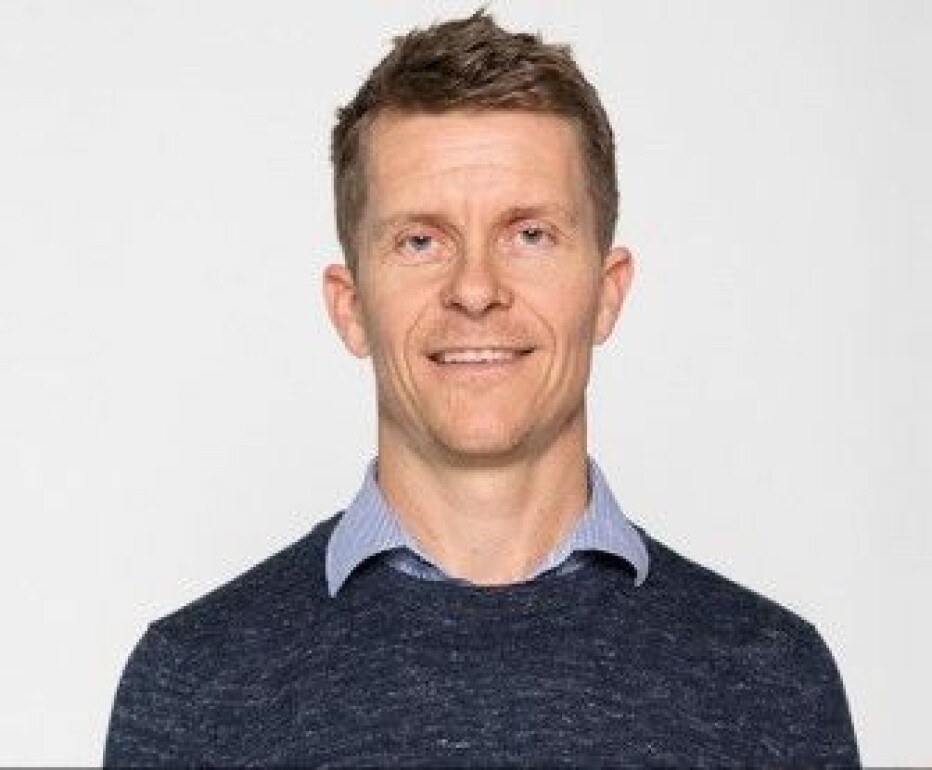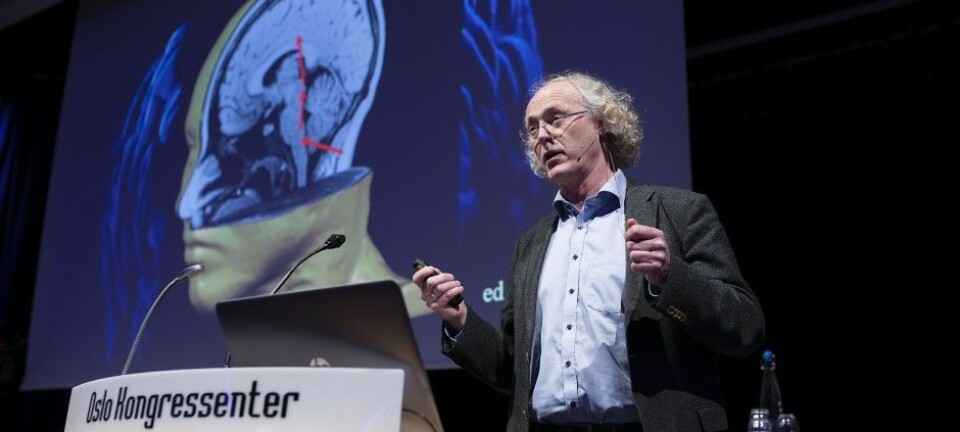
Your brain may be the organ strengthened the most by physical exercise, says neuroscientist
Long-term studies show that people who are physically active on a regular basis can halve their risk of getting Alzheimer's. Why doesn't everyone use such easily accessible 'medicine'?
When Professor Linda Hildegard Bergersen first read about this research finding, she thought, “How does anyone dare to not exercise?”
Especially when it’s such an incredibly readily available medicine.
Bergersen is a professor of physiology at the University of Oslo. She is also a professor of ageing and neurobiology at the University of Copenhagen.
“We’ve changed our lifestyle so dramatically in such a short time,” she says.
“I was born in the 1960s and belong to a generation that walked, biked or skied to school. Today, a child who isn’t involved in organized sports may end up sitting all day,” says Bergersen.
At least 20 minutes a day
The Norwegian Directorate of Health recommends that people exercise at moderate intensity a total of 2.5 hours each week – just over 20 minutes a day.
Many people know that this reduces the risk of cancer and of cardiovascular disease. But exercise also strengthens the brain and can help reduce the risk of Alzheimer's, which some people are unaware of.
This last fact is what Bergersen is especially focusing on.
She knows that our brains remain very plastic, even as we get older. This means that we can influence them ourselves, well into old age.
Your memory centre is shrinking

An important change in your brain as you get older is that the hippocampus shrinks.
The hippocampus plays an important role in memory and learning.
“This is a normal part of ageing,” says Bergersen.
“But when we take pictures of the brain, we see that this shrinkage happens more slowly in people who are physically active. In these individuals, new and healthy blood vessels form in the brain tissue, precisely in the area where the memory resides.
“New blood vessels give the brain tissue easier access to oxygen and nutrients, providing it with more ‘food’”, she says.
Physical training and social training
It's not just about giving the brain nutrients. Scientists now know that people who are physically active also form new neurons in the brain.
You make fresh nerve cells in the brain all your life. But the new growth declines the older you get.
“That’s why exercise isn’t enough when you approach age 60 or older. You also have to use your brain,” Bergersen says.
Of course, you can sit down with crosswords or sudoku. But the best way to train your brain is by being with other people.
“So one of the smartest things you can do is to be physically active with other people. Then you’re getting the physical exercise, and your brain has the opportunity to be social,” she says.
“That way you can produce especially many new nerve cells in the brain,” Bergersen says.
If exercise were a pill ...

Physician and brain scientist Ole Petter Hjelle is also occupied with how little people know about physical activity being a good medicine. He also sees this in the health care system.
“When I talk about the solid and robust studies on how good exercise is not just for muscle and bone building, but also for our brain health, people are usually really surprised,” he says.
“If physical activity were a pill, everyone would be taking it,” Hjelle said.
He believes that for people who don’t exercise, a big part of the reason is that doctors don’t have this tool in their toolbox.
“When I studied medicine, I had 140 hours of instruction in pharmacology and zero hours on physical activity as medicine. It's not much better today. The medical programme in Oslo now has 45 minutes on this topic in six years of study,” he says.
Hjelle believes there are probably several reasons for this. “ I think one of the challenges is that no industry is pushing physical exercise as a real treatment offering, like the pharmaceutical industry naturally does with its drugs," says Hjelle.
How much exercise do you need?
Researchers agree that exercise is good. But how much exercise you need to improve and maintain your health is something they have been debating for years.
Maybe a lot has to do with each person having different needs.
In recent years, medical researchers have become more aware that a good number of medications should be adapted to each individual. Maybe that is also the case with physical activity and its effect on our brain health.
“It could be that physical activity three days a week is enough for some people. But others may have to exercise five days a week,” says Hjelle.
“We know that some people respond well to exercise, others less well. Some people take longer to get in shape than others.
The important thing is to not make it too complicated, and to do something that gets your heart rate up,” Bergersen says.
Is the effect better with more exercise?
The amount of exercise that most effectively maintains a healthy brain is the subject of a major study currently underway in the United States.
Arthur Kramer is a professor at Northeastern University in Boston and has been studying the effects of physical activity on the brain for 30 years.
All over the world the population is getting older. A person’s daily exercise outing could be the difference between an ailing old age and a healthy old age.
Kramer’s research team has previously observed that the ability to solve problems increases when a person runs or takes brisk walks.
But little is known about how much exercise is necessary. Would the effect be even better if people were more active? Or is just a little activity enough? These questions are what the Boston scientists are currently studying.
Kramer notes that the way we look at exercise today is a bit like we regarded smoking 20 years ago. Now we are gradually beginning to understand how dangerous a sedentary life is.
Never too late
One of the most important messages Kramer can give his patients as a doctor is that it is never too late to begin, he says.
“I have a number of patients who have been less active and think that it’s useless to begin once they’re older. That’s wrong. Physical activity can provide incredible health benefits, no matter when in life you begin.”
“The brain may be the organ that is strengthened most by physical activity. Virtually all our brain areas and functions are strengthened when we move. We become more aware. Our memory improves. We become more creative. We can handle stress better,” Kramer says.
Taking the first step
Even with more theoretical knowledge about how good exercise is for both body and psyche, the first step is a big one for many people to take.
It's easy to understand why, according to Hjelle.
“Evolutionally we have a brain designed for laziness. Our ancestors were physically active because they had to be. They had to flee from the enemy and run to get food, but the rest of the time they took it easy to save calories because they didn't know when they’d see their next meal,” he says.
“Our brains want us to save calories. And the brainsa we have today haven’t fundamentally changed since we were hunters and gatherers on the savannah. It’s still programmed for laziness whenever possible,” says Hjelle.
To overcome the lazy brain, he recommends focusing primarily on the immediate gains from exercise and less on what happens in the long run.
“You experience a lot of the rewards right away – just going for a walk puts you in a better mood, and a lot of the same thing happens with our awareness and memory,” says Hjelle.
Receptor found for lactic acid
Of course, researchers are also keen to find out more about what's really going on in our brains when we're physically active.
What is it that creates the positive effects?
Bergersen and her research team at the University of Oslo have shown that lactic acid can play an important role.
A specific lactic acid receptor is activated when muscles work intensively, which in turn causes blood vessels to grow and increases the density of capillaries in the brain. This new blood vessel formation may counteract the development of cognitive failure and dementia by keeping nerve cells in good condition.
The finding was published in the journal Nature Communications in 2017.
Translated by Ingrid P. Nuse
———

































